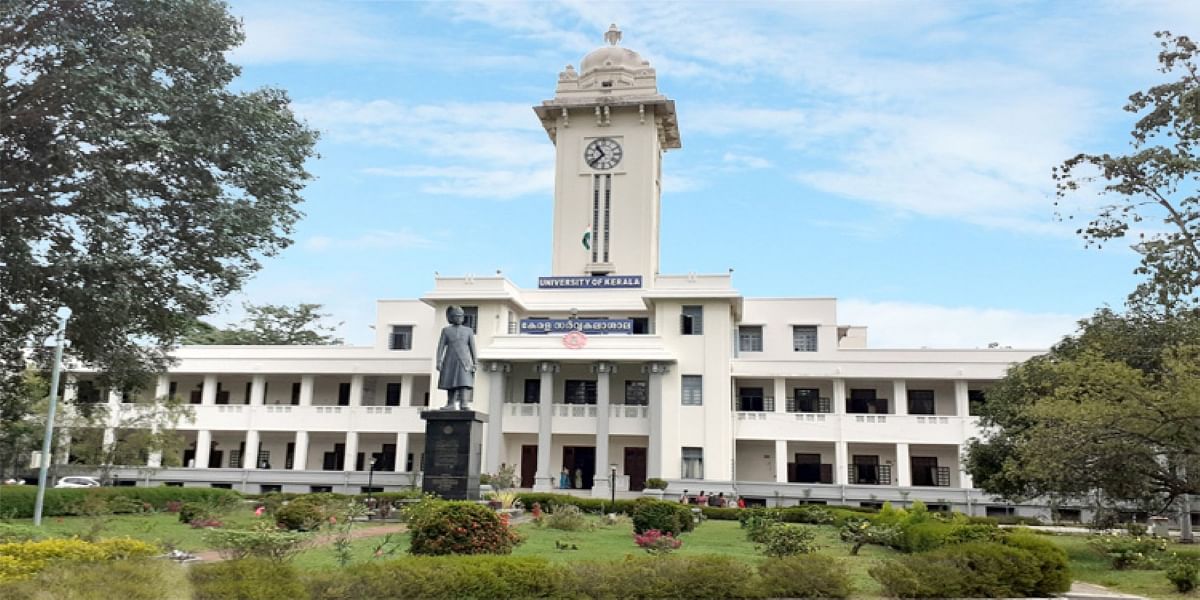BSc Zoology Syllabus and Subjects: Semester Wise Core & Elective Subjects

The BSc Zoology syllabus explores different animal kingdoms, their diversity, food chains, ecosystems, genetics, evolution, and reproduction. The BSc Zoology subjects span three years and comprise six semesters, covering core, elective, and practical papers.
The core subjects in BSc Zoology include cell biology, genetics, principles of evolution, study of insects, comparative anatomy, etc. Students can select 2 elective subjects out of the given 6-7 elective subjects in the course such as aquarium fish keeping, biotechnology, biogeography, marine biology, etc.
B.Sc Zoology gives exposure to students in various industry-specified functions, such as ecology, genomics, physiology, etc. This degree opens up job opportunities in private and government sectors, with roles such as conservationist, wildlife biologist, researcher, and lab assistant.
Table of Contents
Semester Wise BSc Zoology Syllabus
The BSc Zoology syllabus aims to equip students with knowledge and practical skills related to the animal kingdom, animal diversity, genetics, biodiversity, ecosystem, and food chains. In the BSc 1st year syllabus Zoology, the focus is on core subjects, while elective subjects are offered from the second year onwards.
Below is a breakdown of the BSc Zoology syllabus by semester.
BSc Zoology First Year Syllabus
BSc Zoology 1st year subjects aim at understanding an overview of cell biology, plant diversity, biological chemistry, invertebrate biology, environment science, etc. Students can download BSc 1st year zoology syllabus pdf 2024 from the respective university website for a detailed overview.
The table below contains the list of BSc 1st year syllabus Zoology:
| Semester I | Semester II |
|
Life and Diversity of Animals-Nonchordates |
Life and Diversity of Animals- Nonchordates |
|
Invertebrate Zoology-I |
Invertebrate Zoology – II |
|
Animal Discovery |
Comparative Anatomy and Development Biology of |
Practical Topics For BSc Zoology Syllabus 1st Year
Here are the practicals offered in the B.Sc 1st year syllabus Zoology:
- Environment Biology Practical
- Invertebrate Zoology Practicals
- Animal discovery Practical
BSc Zoology Second Year Syllabus
The second year BSc Zoology syllabus deals with the study of animal physiology, immunology, molecular biology, entomology, etc. The table below contains the list of BSc Zoology syllabus in the second year:
| Semester III | Semester IV |
|
Life and Diversity of Animals-Chordates |
Life and Diversity of Animals-Chordates (Reptilia, |
|
Vertebrate Zoology –I |
Vertebrate Zoology -II |
|
Physiology, Biochemistry and History |
Genetics and Evolutionary Biology |
BSc Zoology Second Year Syllabus Practical Topics
In the second year of the zoology syllabus, there are practicals available, which are listed below:
- Genetics Practical
- Vertebrate Zoology Practicals
- Physiology Practical
BSc Zoology Third Year Syllabus
The 3rd year BSc Zoology syllabus focuses on specialized topics such as parasitology, environmental impact assessment, biotechnology in zoology, conservation biology, etc. Here is the list of BSc Zoology syllabus for the third year, presented in the table below:
| Semester V | Semester VI |
|
General Mammalian Physiology I |
Reproductive Biology |
|
Cell Biology |
General Mammalian Physiology II |
|
Applied Zoology and Ethology |
Research/Project |
|
Elective-I |
Elective-II |
|
Value Education |
Practical |
|
Practical |
- |
BSc Zoology Third Year Syllabus Practical Topics
In the second year of the zoology syllabus, there are practical subjects available, which are listed below:
- Cell Biology Practical
- General Mammalian Physiology Practicals
- Reproductive Biology Practical
BSc Zoology Subjects
In the BSc Zoology subjects, students will learn about essential topics like Animal Diversity, Animal Kingdom, Classification, Food Chain, and Ecosystem. The zoology syllabus is divided into three parts: core, electives, and practicals, which are listed below.
BSc Zoology Core Subjects
BSc Zoology core subjects provide a fundamental understanding of the classification of animals, the study of animal behavior, patterns and processes of evolution in the animal kingdom, etc. The following are the core BSc Zoology subjects:
- Life and Diversity of Animals-Nonchordates
- Environment Biology
- Invertebrate Zoology
- Plant Diversity
- Vertebrate Zoology
- Animal discovery
- Comparative Anatomy and Developmental Biology of Vertebrates
- Life and Diversity of Animals-Chordates
BSc Zoology Elective Subjects
The BSc Zoology subjects include electives that are listed below which students can select as per their interest area and domain expertise:
- Chemistry
- Economic Zoology
- Aquaculture
- Medical Diagnostics
- Aquarium Fish Keeping
- Biotechnology
- Zoogeography
- Wildlife Conservation
BSc Zoology Subjects In Detail
The B.Sc Zoology syllabus covers a range of topics including animal kingdom diversity, cell structure, genetics, biodiversity, ecosystems, and food chains. Below is a detailed list of the BSc Zoology subjects:
| Subjects | Topics |
| Animal Diversity | Kingdom Protista, Phylum Porifera, Phylum Cnidaria, Phylum Platyhelminthes, Phylum Nemathelminthes, Phylum Annelida. |
| Anatomy and Developmental Biology of Vertebrates | Integument in different classes of chordates, Respiratory System, Early Embryonic Development, Early Development. |
| Genetics and Evolutionary Biology | Chromosomes, Mendelian Genetics, Sex Determination, Mutations, Origin of Life, Species Concept. |
| Applied Zoology & Ethology | Vermitechnology, Animal husbandry, Introduction to Host-parasite Relationship, Ethology. |
| Reproductive Biology | Reproductive Endocrinology, Functional anatomy of male reproduction, Functional anatomy of female reproduction. |
College-Wise BSc Zoology Syllabus
Depending on the curriculum and program goals, BSc Zoology syllabus differs from college to college. To obtain the B.Sc. Zoology syllabus PDF of a certain college, candidates can visit the official website of the college or university. The subjects and curriculum for top colleges' BSc in Zoology are listed below:
University of Calcutta BSc Zoology Syllabus
The BSc Zoology syllabus at Calcutta University focuses on subjects like applied zoology, environmental biology, biodiversity, microbiology, etc. The following tables show the semester-wise syllabus for B.Sc Zoology at the University of Calcutta:
|
Semester I |
Semester II |
|
Molecular Biology |
Cell Biology |
|
Concept of Non-Chordata - I |
Concept of Non-Chordata - II |
|
Anthropology Basics |
General Mathematics |
|
- |
Animal Physiology |
|
Semester III |
Semester IV |
|
Controlling and Co-ordinating System of Animal Physiology |
Animal Immunology |
|
Fundamentals of Bio-Chemistry |
Life-Sustaining System of Animal Physiology |
|
Sericulture Fundamentals |
Medical Diagnosis of Aquarium Fisheries |
|
Apiculture Fundamentals |
- |
|
Semester V |
Semester VI |
|
Genetics Principles |
Biology Evolution |
|
Ecology Fundamentals |
Concept of Developmental Biology |
|
Parasitology |
Elective-I |
|
Insect Biology |
Elective-II |
|
Endocrinology Concepts |
Project Report/Viva |
Periyar University BSc Zoology Syllabus
The BSc Zoology syllabus at Periyar University offers elective zoology subjects like Marine Biology, Herpetology, Mammalogy, Ornithology, etc. The following tables show the semester-wise syllabus for B.Sc Zoology at Periyar University:
|
Semester I |
Semester II |
|
English-I |
English-II |
|
Language-I |
Language-II |
|
Invertebrates |
Concept of Chordata |
|
Value Education |
Invertebrates and Chordata Practical |
|
Invertebrates Practical |
Environmental Studies |
|
Botany and Chemistry Practical-I |
Botany and Chemistry Practical-II |
|
Semester III |
Semester IV |
|
English-III |
English-IV |
|
Language-III |
Language-IV |
|
Concept of Cell Biology |
Fundamentals of Genetics |
|
Chemistry and Botany Theory -III |
Chemistry and Botany Theory -IV |
|
Chemistry and Botany Practical -III |
Chemistry and Botany Practical -IV |
|
Genetics, Vermiculture, Vermicomposting, Aquaculture, Cell Biology Practical |
Elective-I |
|
Elective-I |
Elective-II |
|
Elective-II |
Internship Program |
|
Semester V |
Semester VI |
|
Fundamentals of Developmental Biology |
Fundamentals of Environmental Biology |
|
Concept of Animal Physiology |
Evolutionary Biology Concepts |
|
Microbiology and Immunology |
Computer Application, Bioinformatics and Biostatistics Concepts |
|
Elective-III |
Elective-V |
|
Elective-IV |
Elective-VI |
|
Practical-III & IV |
Practical-V & VI |
|
- |
Project Report |
BSc Zoology Course Structure
The zoology syllabus for BSc is structured into three parts wherein the first year covers mainly core courses, practicals, and electives, and their practical starts from the second year. In general, the course structure may vary from college to college. Listed below are the course structure in general:
- VI Semesters
- Core Studies
- Elective Subjects
- Practical Study
- Project Submission
BSc Zoology Teaching Methodology and Techniques
There are various ways to teach BSc Zoology, including experiential and collaborative experimental learning. Process-based and problem-oriented methods, as well as problem-solving and project approaches, are commonly used. Here are some techniques that can be used:
- Demonstration
- Experimental Method
- Process-Based Learning
- Problem-Solving Exercises
BSc Zoology Projects
Completing projects is a crucial aspect of the BSc Zoology subjects, which include practical assignments. These projects assess students' knowledge of parts of the animal kingdom, such as structure, embryology, and development. Below are some of the project topics covered in the BSc Zoology syllabus.
- Development of Animal Viruses
- The Isolation and Identification of Nematode Affecting Tomatoes
- A Preliminary Study of Gastrointestinal Helminth Parasites of Toads
- Magamnet of Zoos and Natural Reserves in India
B.Sc Zoology Reference Books
BSc Zoology syllabus books help students understand the vast range of concepts such as animal physiology, cell structure and function, ecosystem dynamics, energy flow, scientific writing, etc. Below is a table containing the top recommended books for the BSc Zoology syllabus.
|
BSc Zoology Books |
Author |
Topics Covered |
| Genetics | PK Gupta |
Principles of Genetics, Mendelian Inheritance, DNA Structure, etc. |
| Animal Physiology | R.L. Kotpal |
Physiology of Animals, Circulation, Respiration, Digestion, etc. |
| Research Methodology in Biological Sciences | R.S. Singh |
Research Methods, Experimental Design, Statistical Analysis, etc. |
| Vertebrate Zoology | A.K. Verma, B.P. Pandey |
Vertebrate Anatomy, Physiology, Taxonomy, Evolution, etc. |
Top BSc Zoology Colleges
Top Science Entrance Exams
BSc Zoology Fee Structure
FAQs on BSc Zoology Syllabus and Subjects
Q: What is the syllabus of BSc Zoology 1st year?
Q: How many subjects are there in BSc Zoology?
Q: Is BSc Zoology a good option?
Q: Can I do BSc zoology without maths?
Q: Is Cell Biology part of BSc Zoology Subjects 1st year?
Q: Is fieldwork part of zoology syllabus for BSc 1st year?
Q: What practical skills are emphasized in BSc 1st semester Zoology syllabus?
Q: What advanced topics are covered in BSc Zoology syllabus in second year?
Q: What are the core subjects in the BSc Zoology syllabus?
Q: Do BSc Zoology students study ecology and conservation?
Q: What Skills are Developed During BSc Zoology?
Q: Are there any specialization options in BSc Zoology?
























